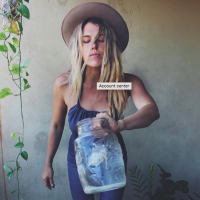View this post on Instagram
A note from the author: My understanding and opinions have likely changed by the time you are reading this, as I continue to learn and unlearn. I welcome your comments for discussion and certainly if I am missing something, I welcome the opportunity to grow.
We must acknowledge that America’s superpower comes from centuries of brutality.
Acknowledgment is not strong enough. We must act. But first, we have to allow ourselves to feel and deeply understand the horrors of this truth. This helps us draw up the emotion and energy to work for great, lasting change.
“America was founded on the ideal of democracy. Black people fought to make it one.” ~ “1619,” New York Times
Our all-important economy—the principles of our esteemed capitalism, the democracy we are expected to die defending, the “American way” of clawing to the top, the selfish pursuit of wealth that many of us abhor (and perhaps have pondered halfheartedly for the origin)—was built with slavery.
From beating human bodies, separating families, and selling people in the masses to increase personal wealth. Our nation’s founders may have desired freedom and independence, but not without the enslavement of humans. They wanted to enjoy their freedoms and build their wealth upon the backs of others.
I am waking up to the reality of where I come from. I am waking up to the oppressive society and racist systems that have grown from the brutal roots of slavery. These ways were publicly severed (but not destroyed) only 155 years ago.
Our American Dream was built on the backs of black people ripped from their homeland, people, culture, happiness, and identity. We homogenized nationalities and ethnicities into one race to be exploited for lifetimes.
A culture founded on the brutality of the vulnerable continues to oppress and profit off of the impoverished demographics. America is killing people. The leaders value the economy over addressing healthcare and human rights.
Why does the United States think it can discuss justice, equality, democracy, or even economics if it’s on the backs of innocent, oppressed, and completely vulnerable humans?
In fact, who am I to preach environmental justice if my podium is constructed with the resources of white privilege and built on the oppression of others?
How can I speak of justice?
These brutal, oppressive systems that abandon America’s own people are still rooted in all sectors of society. Since day one, America has always valued profit over people.
As environmentalists, our fight for environmental justice is blind, uninformed, insensitive, egoic, and unabashedly privileged if we do not fight for equality for all races. These demographics suffer the environmental hardships that we, with privileged time and energy, protest and discuss at cafes.
The conservation policies and regenerative systems we are fighting to put into place have always valued local and small businesses. They call for natural and repurposed materials, slow and transparent supply chains, circular systems for reduced waste, and improved resource management, and all of these things are good.
Still, it’s not sustainable, regenerative, or healthy if the folks benefiting from these policies are the same folks who have always benefited. We will be consciously and naturally perpetuating the oppressive systems. We will be eating organic and keeping an empty trash can. However, the communities of color will still be overworked, underpaid, and unable to afford the eco-lifestyle we preach and advocate for.
The environmental movement must stand up for black, indigenous, people of color. It is the wealth gaps and opportunity inequality that make people vulnerable. Those are the people who are taken advantage of by big oil, who cannot afford to defend their communities against the destruction of construction or poisons of fossil fuel extraction, targeted by poor quality food in plastic packaging.
The culturally ingrained racist systems keep churning out dollars for the top people who come from a long history of stepping on people of color to get there. Our campaigns targeting big corporations, fossil fuel conglomerates, and governments to ban plastics are the same targets for racial justice. Environmental destruction happens not to our own front yards, but the yards of BIPOC.
Recently we realized we have to fight for nature. Perhaps we are finally seeing the human beings who are a part of these ecosystems we feel so compelled to defend. And we now know it is these human beings we must defend above all because in the nature-aligned, thriving world we dream of, there is not oppressive, brutal capitalism.
Our goals and targets are the same in the crusade for environmental justice as they are for racial justice. Of course, they are connected. That is the essence of nature. There is no separation in nature. Where are the boundaries of an ecosystem? They continue to expand and contract in every direction. Nature thrives with biodiversity; what we do here affects the air and water over there. So, of course, our humanitarian issues impact our environment.
This is the pressing issue that has global attention and thus needs our individual energy. Give it. It’s all connected.
This movement is about getting uncomfortable, facing the hard truths, and collaborating to change the problematic systems. If we are going to change society to value the environment, we must change it to value all humans.
This is a moment in history. We are mobilized. There is more energy and collaboration for change than ever before. We are all in this together. Some folks think this is not their fight, but they are choosing to stay in a hypocritical bubble of privilege. It’s comfy there right now, but the world is rocking toward a better, brighter future. It has to.
Listen to the podcasts (especially episodes 1 and 2) “1619” from the New York Times: here.


 Share on bsky
Share on bsky




Read 1 comment and reply